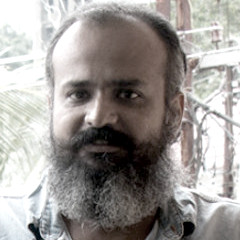‘The Hunt for Veerappan’ – facts and nothing but facts about a myth | Selvamani Selvaraj’s Netflix docuseries

Mail This Article
In his four-part docuseries ‘The Hunt for Veerappan’ on Netflix, filmmaker Selvamani Selvaraj 'aims to explore whether socio-political situations can create figures like Veerappan and if he truly represented such an entity'. A thought surely would have crossed the minds of those who ventured to narrate the stories of society-labelled anti-social figures.
The choice of the documentary medium restricts the storyteller to present the truth rather than manipulate the narrative, and Selvaraj accomplishes this through his Rashomon-style storytelling. While telling such tales in fiction may be straightforward, as one can cater to the audience or follow their conscience, the documentary medium imposes limitations. Documentarians are compelled to choose between truth and a path that leads to a deeper comprehension of the issue, akin to walking upstream in a dense forest, guiding viewers to higher plains of understanding.
Selvaraj, though he chooses Muthulakshmi, Veerappan’s wife, as the main subject to tell the story, achieves it with remarkable clarity. There is no denying that the filmmaker in him tries to manipulate the viewing experience through well-chosen cinematic camera angles, cuts, lighting and music. For instance at the end of the first episode (Chapter One - The Forest King), immediately after Munusamy, a resident of Gopinatham (Veerappan’s village), breaks down in front of the camera while talking about the beheading of Karnataka Forest Officer P Srinivas, Selvaraj asks Muthulakshmi, who is shown sitting on her wooden cot leaning backwards in a (slightly) low-angle wide shot under one-point lighting, “Sister, this one killing was the reason for whatever followed. Couldn’t this have stopped?” The camera cuts to a close profile of Muthulakshmi from the shadow side and we see her smile nonchalantly, confusing us for a moment if we saw the glimpse of Veerappan in her.
But if one could take away all the cinematic effects from this moment, then it would look as if Muthulakshmi is smiling at Selvaraj wishing things were indeed that simple and smiling at the mere suggestion that there could have been an alternate course for her eventful life. One in which Veerappan would have come home after serving a short prison sentence as a doting father and husband like the dreaded brigand wanted towards the final years of his life. Similar creative intrusions from the storyteller can be found all through the episodes but it never interferes with the presenting of facts.
It is commendable that the documentary-maker avoided the dramatic re-enactments of events and instead resorted to archival footage, photographs, newspaper clips or bringing the subjects to the actual locations to tell their version of events. The only time this was broken was while interacting with ‘Trader’, a local merchant who sold rice to Veerappan. Being the one through whom IPS officer K Vijay Kumar’s Special Task Force fed false hopes of an escape to Sri Lanka to Veerappan, ‘Trader’ is shown in a dark storeroom and is made to enact carrying sacks of essentials for Veerappan and the gang in the night on his moped.
The well-researched docuseries, which is rich in resources and materials, on a person who attained mythical status even during his lifetime would have remained engaging sans these cinematic interludes, which straps the viewers on a rollercoaster ride of emotions forcing them to take sides each moment.
The other thing that Selvaraj’s ‘The Hunt...’ tells is that Veerappan (or the so-called entity the documentary-maker was discussing in an interview) is a human like all of us. The idea is delivered rather strongly in the opening and closing scenes. The documentary opens with the interviewer asking Muthulakshmi, who is walking towards the forest with the camera following her from behind, “Who is Veerappan?” and she answers plainly, “My husband.” And the documentary closes when the interviewer matter-of-factly tells Muthulakshmi that he doesn’t consider the act of killing as bravery, and she takes a long pause before answering “All right!” She wants to say something but thoughts and sighs win the moment. She simply sits there looking at the person sitting in front of her who took away the false belief she was holding steadfast.
The camera then cuts away to Muthulakshmi standing under the tree where she saw Veerappan for the first time up close and where he proposed to her. In the background, we hear the voice of Veerappan from one of the last recorded tapes sent to Muthulakshmi and it transcribes as: “My wife is a warrior. When you come next time, I will tell you this in person. What happened was injustice, no one can do anything about it. Those in power have their laws and so do I. Only the gods in the sky and forest deities know my whole truth.”
Intriguingly, ‘The Hunt...’ urges audiences to contemplate the remaining truths surrounding Veerappan, going beyond the tragic loss of lives, wildlife, and resources, and delving into the enigmatic end of a man whose legacy is both mythic and infamous. To fully grasp the complexities of this riveting story, one must watch the documentary.


